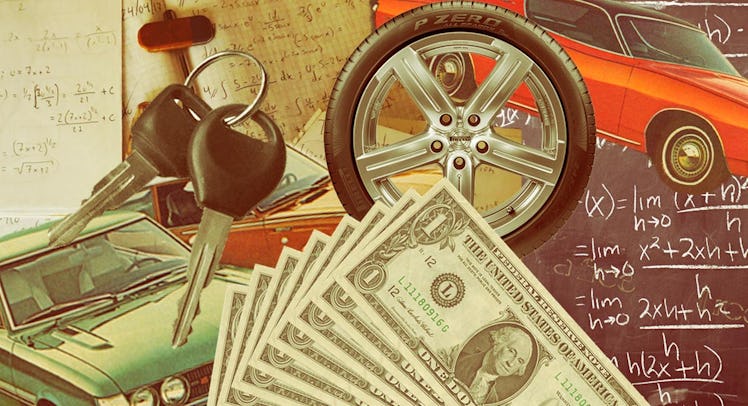5 Questions to Ask Before You Finance a Car
Everything you need to know about financing a new car.

So, is it a good idea to finance your next car? Well, that depends. Think of auto financing as applying for a mortgage to pay off a new ride. This means you’ll live with it for the term of the loan which will likely take you into or through a life stage. So, you must ask yourself: Does it have space in the back for a stroller? Can you fold down the seats for hockey sticks or surfboards? Is there a third row to allow peace in a growing family? Does it have a backseat — or is this a mid-life crisis impulse?
If you know the answers to most of the questions above, consider taking the plunge. Financing makes the most sense if you want your car for the long haul. A lease ends when it ends, much like a car rental, but you’ll keep your car once it’s paid off. There are myriad reasons to choose ownership over a lease, including low financing rates, incentives, and tax breaks, and favorable depreciation. If you’re ready to walk into the dealership and finance a new car, but don’t really have a clue how to do it, here are five factors you’ll need to consider.
How much money can I put down?
Unlike a lease, since you’re going to own this car outright in some number of years, it’s smart to pay for some of it upfront. Consider a down payment of up to 15 to 20 percent to defray future costs and lower your payments overall. You’re paying the depreciation, as in a lease, but it’s your cost to bear over time.
What’s the purchase price?
The dollar amount on the window sticker is not necessarily the price you pay. Before you leave the house, find out the invoice price (what the dealer paid) for the car you want to buy. Independent pricing guides, like TrueCar, NADA Guides, and Kelley Blue Book, are your best bets as resources. Use them to track down the car you want, down to the VIN, and find it on a dealer lot. Buyer beware: By sharing your details with a third party, you often submit to emails from lead generation services. (Spam overload!)
Should I go with captive financing or an independent lender?
As with a lease, you’re more likely to receive favorable rates based on stable income and a high enough credit score. You should also know if you want to finance your new car through the dealer, or through an independent lender. Why choose your own financing source? You won’t be subject to the whims and restrictions of a captive financing arm. Plenty of online lenders are now competing for your business.
How long will it take to pay off the car?
The answer here all depends on the term of the loan, which can be as short as two years or as long as six or seven. Generally, you can also negotiate a lower interest rate if you shorten the term. Your monthly payment will be higher, but you’ll pay for fewer months.
What interest will I be paying?
Are you being gouged? Look for advertised interest rates (APR, annual percentage rate) close to zero percent. This does exist. Your actual interest rate will vary, based on credit score and history, but you want to pay as little as possible. There are no guarantees on when the best deals will pop up, so consider speaking to several dealers and staying apprised of their advertised specials—once you know which car you want to buy.
This article was originally published on